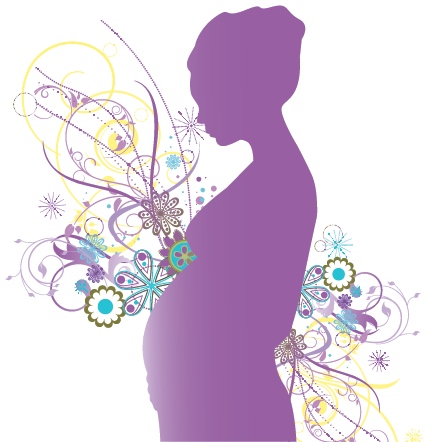By Anita Rangaswami
A Jewish proverb says, “God could not be everywhere, so he created mothers.” Pregnancy and motherhood have been eulogized for centuries in all cultures across the world, and we don’t want to trivialize them in the modern times. This amazing phenomenon of procreation that brings tears of joy and sighs of sleepless nights that follow cannot be taken lightly –pregnancy is a special time not only for the mother-to-be, but also for her partner whose help and support are invaluable.
The bodily changes that occur are a major part of the equation, but there is a growing awareness of the mental, emotional and spiritual aspects of pregnancy too. Oliver Wendell Holmes, a highly regarded Supreme Court Justice, remarked that “the real religion of the world comes from women much more than from men – from mothers most of all, who carry the key of our souls in their bosoms.”
Naturally, along with the joys of carrying a baby come the everyday discomforts of having to adjust to a growing body, morning or evening nausea, anemia, edema, back pain, and many other symptoms. According to Ayurveda, a 5,000-year-old medical science that originated in India, there are four keys to holistic health and well-being which can be applied to pregnancy as well—nutrition (aahaar), lifestyle (vihaar), behavior (aachaar) and mental processes/thoughts (vichaar). “You are what you eat” takes on special significance during pregnancy. If you smoke, so does your baby. If you drink alcohol, so does your baby. And if you take drugs or medicines, so does your baby!
Nutrition
Getting sufficient vitamins and carbohydrates to help with growth of the baby’s bones and skeletal system, and eating high fiber foods to prevent constipation as the pregnancy progresses, are high priorities. Vitamin A can be found in cantaloupes, guavas, mangos, tomatoes, watermelons, broccoli, sprouts, spinach, sweet potatoes, brussels sprouts and carrots. Vitamins B1, B2 and B3 are found in green leafy vegetables and whole grains; vitamin B6 in bananas, brown rice and green leafy vegetables; vitamin C in citrus fruits; vitamin D in fortified cereals and dairy products; and vitamin E in unrefined vegetable oil.
Avoid raw or unripe papaya and excessive pineapple juice during the first trimester, as they can bring on early contractions and soften the cervix.
Lifestyle
Maintain regular sleep patterns, avoiding excessive sleeping during the day and staying awake late at night. A simple walking routine along with some gentle yoga poses like cat and cow stretch, cobbler’s pose, butterfly, child’s pose, legs up the wall, and simple heart-opening poses allow the body to open up and get prepared for the arrival of the baby. These poses have been safely practiced over the centuries.
Behaviors
Be aware of excessive stimulation of the senses. TV, movies, and other experiences that give rise to horror, grief, anger, or sorrow can cause the fetus to become over-stimulated. Avoid excessive sex in the first and third trimesters of pregnancy. Panchakarma and detoxification treatments should be avoided during pregnancy, except for occasional enema if needed.
Mental Thoughts
Become aware of your tendency to ruminate over events and situations from the past. Your happy thoughts and emotions get passed on to your baby, so a simple meditation practice that can alleviate pregnancy-related fears and anxieties is highly recommended. Regardless of faith or religion, by attending spiritual discourses, listening to the wisdom of ancient scriptures and soothing, divine music and chants, you can begin releasing positive “happy molecules of emotion” to flow to the baby.
An Ayurvedic practitioner can help you take good care of yourself and your baby during this exciting time of your life. Enjoy your journey through pregnancy and Happy Mother’s Day to all mothers in the world!
Anita Rangaswami is an Ayurveda practitioner registered with the Association of Ayurvedic Physicians of North America, yoga therapist and Chopra Center certified instructor. She is the founder of Prana Gyana Holistic Health and Wellness Center in Tempe. pranagyana.com 480.598.9961
anita@pranagyana.com
The information provided in this article is not a substitute for medical advice to be taken from a licensed physician or OB/GYN. Consult your health care provider for specific questions or concerns.
Illustration by Arina Anoschenko





